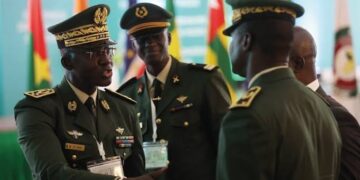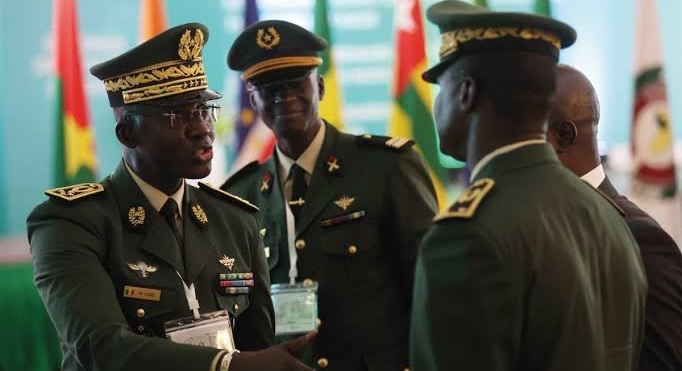By John Ikani
A high-level conference bringing together defence chiefs from 30 African nations is set to take place next week in Botswana.
Organized by the United States Africa Command (AFRICOM), the two-day event marks the first gathering of its kind on African soil since its 2017 inception.
“The primary focus is to address critical security issues facing the continent and collaboratively chart a path towards a more secure Africa,” stated AFRICOM spokesperson Lt. Commander Bobby Dixon.
The conference agenda encompasses a wide range of topics, including counterterrorism efforts, cybersecurity threats, and peacekeeping missions.
Military leaders and specialists will share knowledge, strategies, and forge partnerships aimed at bolstering Africa’s collective defense capabilities.
AFRICOM views this gathering as a pivotal step towards a unified approach to safeguarding the continent.
Previous conferences, with the highest attendance of 43 countries recorded in Rome last year, have served as a springboard for the upcoming event.
“Undoubtedly, Africa grapples with a multitude of security challenges,” acknowledged Jakkie Cilliers, a political scientist at the Institute for Security Studies in Pretoria.
“However, the suitability of the US-advocated model for Africa remains debatable. Recent years have witnessed a rise in coups, some perpetrated by African forces trained by the US, UK, and France.
In addition, the withdrawal of several UN peacekeeping missions, like those in DR Congo and Mali, is another observable trend.”
“On the other hand, Russia and the Africa Group (also known as the Africa Corps) are expanding their influence. It’s clear that Africa faces a security dilemma, and partners have a crucial role to play in offering assistance,” Cilliers emphasized.
He further stressed the importance of the Gaborone conference in formulating effective solutions to Africa’s security woes.
“Will we witness the emergence of a new model where African governments explore alternative security arrangements, potentially involving other African countries? It’s also noteworthy that the role of private military companies is on the rise,” Cilliers remarked.
“This conference coincides with a period of significant shifts in the global power dynamic, and Africa once again finds itself as a contested region. Ideally, these critical issues will be thoroughly explored at the upcoming conference in Gaborone, paving the way for concrete solutions.”
In March, following a Peace and Security Council meeting, the African Union voiced “deep concern” over the devastating impact of ongoing conflicts on the continent’s socioeconomic development.




































